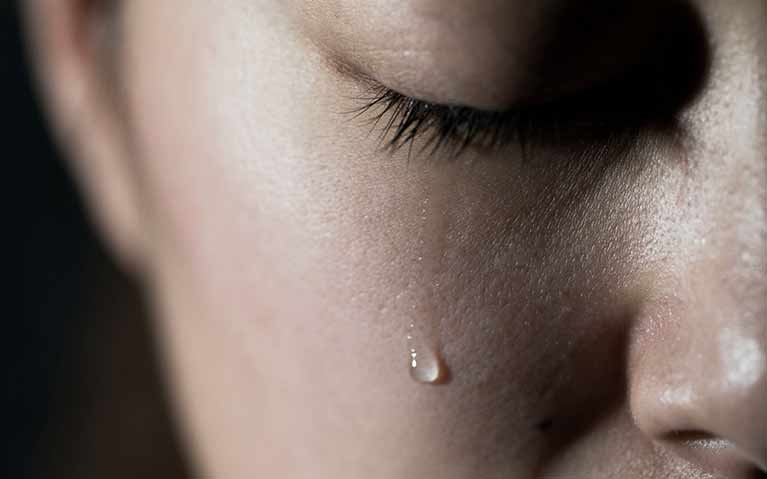The grief of losing someone is like a butterfly, sitting on your shoulder as you walk through life. You always know it’s there, but you don’t notice it until you start thinking about it.
Some people will ignore it; refusing to let it defeat them and force themselves to go through each day as it were a challenge to get through, exhausting themselves so they don’t see their loved ones face as they fall asleep at night. Others curl up and never want to leave their beds; not wanting to face the world outside, not wanting to face life without the company, support and love of the person they lost. Those kinds of days can turn into weeks, and weeks into months; and you realise that while you have been sat in their room not wanting to participate in life, life has moved on, your friends and family have stopped calling. People, so uncomfortable with witnessing the grief of others convince themselves that you are managing and that you don’t need checking up on. Those are the days you feel totally alone.
Suddenly you find that you don’t actually know how to move on, what does moving on even mean? Does it mean forgetting? Does it mean that you remember the deceased only on anniversaries and birthdays? You are so scared of forgetting that you find yourself holding onto each and every memory for dear life. You fear forgetting them; you feel guilty that you have spent the entire day going about your business and have not thought of them; you’re angry that you didn’t get to say all the things you wanted to say, perhaps you didn’t even get to say goodbye.
It’s a lot to deal with, and it get’s more complicated the more we start burying our feelings; the more we start pretending we’re OK. If we continue each day as if our loved ones were still alive, we can fool ourselves into believing they’re gone somewhere else for a little while, and they’ll be back soon. We can fool ourselves into thinking we’re doing OK, all the while we’re losing our tempers at the slightest provocation. We’re not sleeping, or we’re sleeping too much, we start eating/drinking/taking drugs to try and mask the pain. We refuse to part with anything that belonged to our loved one, all the while fearing that one day someone that meant so much to you will be distant memory. So we hold onto the hurt itself, as a reminder that they were alive and now they’re gone.
In your grief you don’t realise that they live on through you, they will not be forgotten, even if you only think of them on some days, that person will always be a part of your life.
Sometimes grief stays with you, like a butterfly sitting on your shoulder, your companion for the rest of your days, and that’s OK, as long as you acknowledge the butterfly, incorporate it in your life and allow your life to grow, so the butterfly is hardly noticeable. If you make it your life’s work to nurture the butterfly it will grow into something it’s not meant to be… an all-consuming life force, a creature that will send you down an extremely painful, self-destructive route. Some people, who allow the butterfly to grow, are unable to resume their lives until they acknowledge their grief and work through all the different emotions that are jumbled up inside of them. Some people will learn to live with the small butterfly, and then there are those that use it to help others.
How we handle grief seems to be determined by how we handled loss as a child; if we had a secure, unconditional relationship with our parents, our sense of self-worth was high, we developed healthy relationships in life and we dealt with bereavement without the fear and anxieties of ‘not being able to cope’ without them in the future. We would’ve learned to trust ourselves implicitly and trust others to not hurt us or let us down, so when we lose loved ones, yes we feel the tremendous sadness that comes with loss, but it doesn’t debilitate us. We don’t feel lost and totally abandoned.
If our parents placed conditions on their affection, then our attachment to them would be insecure, we would constantly be on the look-out for people’s motives for being with us, not being able to trust anyone fully, or even trust ourselves; how could we totally depend on ourselves if we weren’t worthy of our parents unconditional love? We feel scared, isolated, lost, unable to trust again unable to express the emotions that we are feeling, as we have no one to tell, and who would really sit there and listen non-judgementally?
Both realities are normal. Not all of us have been lucky to have had parents give us unconditional love, and not all of us have the self-belief that everything will be OK after our loved one has left us. But everything will be OK. Grieving for a loved is inevitable, because death is inevitable, but it doesn’t mean that it will debilitate you forever, for a little while maybe, and that is OK, because life is never really going to be the same again, not matter how much we cry for it to be.
There is always help and support available, for those that are struggling to come to terms with the death of a loved one; you don’t have to go through it alone.


Leave a Reply